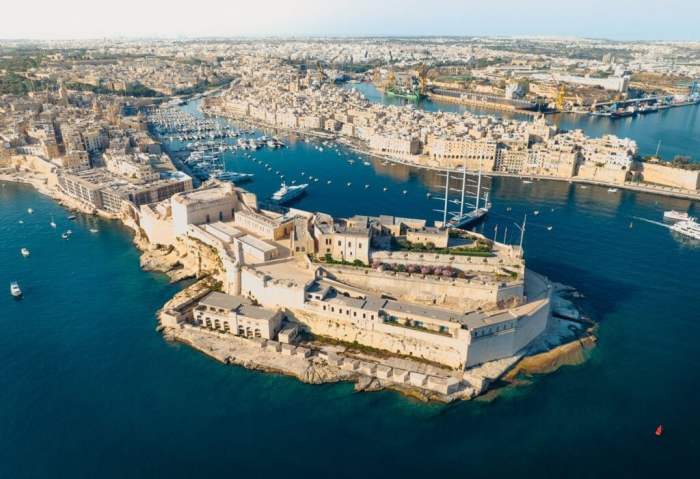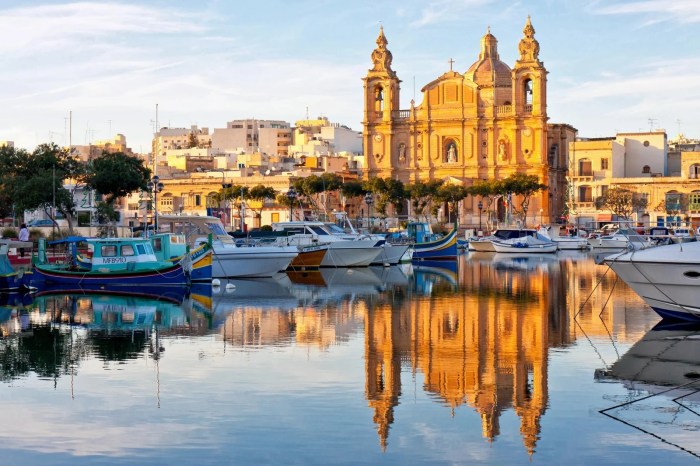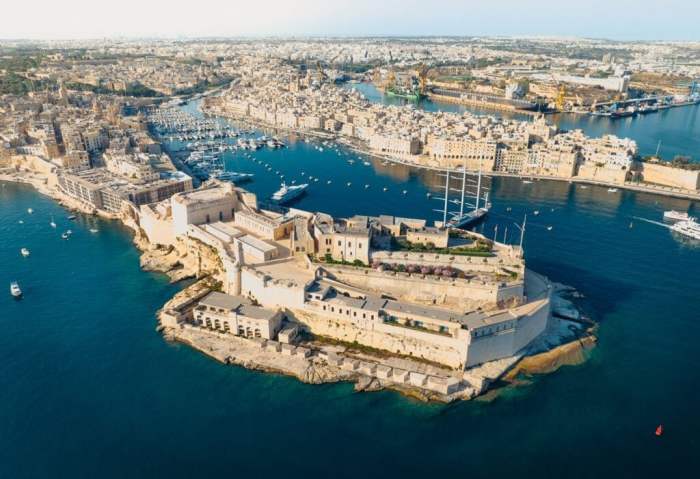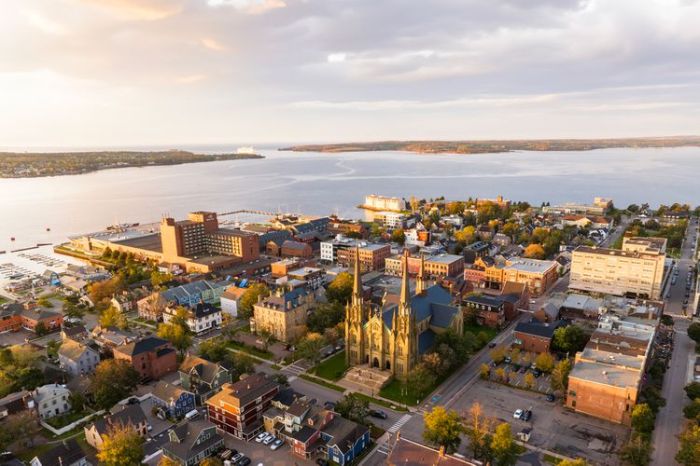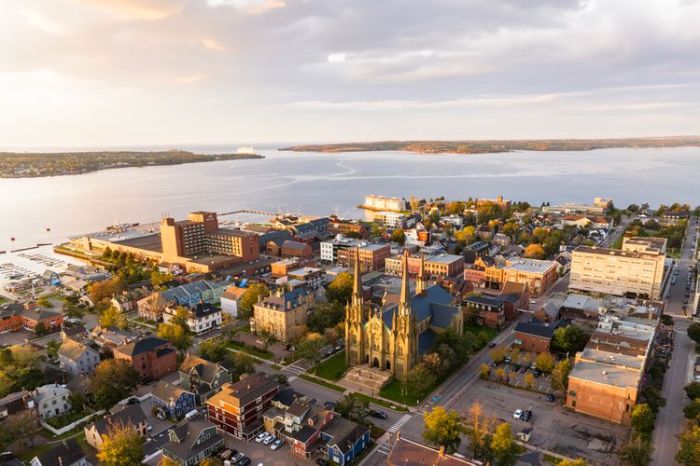Austin trending retirement destination usa – Austin, a trending retirement destination USA, is attracting a growing number of retirees seeking a vibrant lifestyle and a unique blend of urban excitement and natural beauty. From its thriving music scene to its stunning parks and outdoor activities, Austin offers a plethora of options for retirees looking for an engaging retirement experience. This comprehensive look at Austin as a retirement destination delves into its appeal, considering economic factors, healthcare, community support, and lifestyle opportunities, as well as potential challenges.
The city’s appeal extends beyond its cultural attractions, encompassing a wide range of housing options, from affordable apartments to luxurious homes. This detailed analysis will examine the diverse demographic profile of Austin’s retiree population and explore the financial implications of relocating for retirement. We’ll also explore the quality of healthcare services, senior support systems, and community events tailored for retirees.
Austin’s Appeal as a Retirement Destination
Austin, Texas, is rapidly gaining recognition as a desirable retirement destination. Its vibrant culture, strong economy, and diverse activities are attracting a growing number of retirees seeking a fulfilling and engaging lifestyle beyond traditional retirement hubs. The city’s unique blend of urban amenities and natural beauty makes it an appealing choice for those looking to transition into a new chapter of life.Austin’s reputation as a retirement haven stems from its exceptional quality of life, which is attractive to many.
The city offers a wide range of cultural and recreational opportunities, combined with a generally affordable cost of living compared to other major metropolitan areas. These factors, along with the overall sense of community and inclusivity, have drawn a significant portion of retirees to Austin.
Demographics of Austin’s Retiree Population
Austin’s retiree population is diverse, encompassing a range of ages, incomes, and backgrounds. While there isn’t specific, publicly available data solely focused on the demographics of Austin’s retiree population, general trends in the city’s population reveal a mix of factors. The average age of Austin’s residents is relatively young compared to other major retirement destinations, but there is a significant segment of the population that is approaching retirement or already retired.
Income levels among retirees in Austin vary, reflecting the diverse employment opportunities available in the city, from those with modest savings to those with substantial wealth. These retirees are drawn to Austin from various parts of the United States, each with their own unique experiences and perspectives.
Lifestyle and Culture in Austin
Austin’s culture caters to a wide range of interests, appealing to retirees seeking a vibrant and active lifestyle. The city boasts a strong arts and music scene, with numerous live music venues, art galleries, and theater productions. Its commitment to sustainability and outdoor activities is evident in its numerous parks, trails, and green spaces, providing ample opportunities for recreation and enjoyment.
The city’s commitment to a healthy lifestyle is reflected in its numerous fitness centers, yoga studios, and wellness retreats. Austin’s culture also emphasizes inclusivity and diversity, which fosters a welcoming and supportive atmosphere for retirees from all walks of life.
Amenities and Activities in Austin
Austin offers a plethora of amenities and activities designed to cater to retirees. Its extensive park system, including Zilker Park and Barton Springs Pool, provides opportunities for relaxation, exercise, and socializing. The city’s numerous museums, such as the Blanton Museum of Art and the LBJ Presidential Library, offer intellectual stimulation and cultural enrichment. The thriving food scene, with its diverse culinary options and farmers markets, adds to the overall appeal of Austin for retirees.
Austin also hosts numerous festivals and events throughout the year, offering retirees opportunities to engage in community activities and meet new people.
Cost of Living Comparison
| Retirement Destination | Estimated Average Housing Cost (per year) | Estimated Average Groceries Cost (per year) | Estimated Average Healthcare Cost (per year) |
|---|---|---|---|
| Austin, Texas | $20,000 – $50,000 | $3,000 – $6,000 | $6,000 – $12,000 |
| Phoenix, Arizona | $18,000 – $45,000 | $2,500 – $5,000 | $5,000 – $10,000 |
| Florida (e.g., Orlando) | $22,000 – $55,000 | $3,500 – $7,000 | $6,500 – $13,000 |
Note: These are estimates and may vary based on individual preferences and lifestyles.
Housing Options for Retirees
Austin offers a diverse range of housing options to cater to different budgets and preferences.
| Housing Type | Description | Approximate Cost (per month) |
|---|---|---|
| Affordable Apartments | Studio or one-bedroom apartments in established neighborhoods | $800 – $1,500 |
| Mid-Range Homes | Single-family homes or townhouses in suburban areas | $1,500 – $3,000 |
| Luxury Homes | Spacious homes in upscale neighborhoods, often with amenities like pools and yards | $3,000+ |
Note: Housing costs in Austin are subject to fluctuations based on market conditions and location.
Economic Factors for Retirement
Retiring in Austin presents a unique economic landscape. While the vibrant city offers a desirable lifestyle, understanding the financial implications is crucial. The cost of living, investment opportunities, and potential income streams need careful consideration for a secure retirement.The Austin economy, driven by technology and the creative industries, provides diverse income streams for retirees. However, expenses also reflect this dynamic market.
Finding a balance between desired lifestyle and financial sustainability is key to a successful retirement in Austin.
Income Sources for Retirees
Retirees in Austin have several potential income sources. Social Security benefits remain a cornerstone for many, while pensions, if applicable, offer additional stability. A crucial aspect is supplementing these sources through part-time work or investments. This may include consulting services, freelancing in a chosen field, or potentially even starting a small business. The diverse job market in Austin, including opportunities in technology, healthcare, and education, presents numerous options for retirees seeking part-time work or entrepreneurial ventures.
Expenses in Austin
Austin’s vibrant lifestyle comes with a price. Housing costs, especially in desirable neighborhoods, can be substantial. Healthcare expenses, while potentially affordable in some areas, should be factored into retirement budgets. The cost of transportation, dining, and entertainment also needs consideration. Budgeting effectively for these expenses is essential for maintaining a comfortable lifestyle without depleting savings prematurely.
Potential Savings Strategies
Savings strategies for Austin retirees should incorporate the city’s unique economic characteristics. Maximizing retirement savings, while taking into account potential healthcare costs, is paramount. Diversifying investment portfolios across different asset classes, considering Austin-specific opportunities, and considering inflation-adjusted returns are vital steps. Utilizing financial advisors experienced in the local market can provide valuable insights and guidance.
Job Market for Part-Time Work
The Austin job market provides opportunities for retirees seeking part-time work. Technology, healthcare, and education sectors often have openings for experienced professionals. The freelance and gig economy are also significant aspects of the Austin job market, allowing retirees to pursue their skills in flexible arrangements. Retirees may find part-time work that aligns with their interests and expertise, while also offering supplemental income.
Financial Benefits and Drawbacks
Relocating to Austin for retirement presents both advantages and disadvantages. The city’s strong economy offers potential for investment and part-time work opportunities, but the high cost of living, particularly housing, is a significant factor. The diverse cultural scene and lifestyle amenities are significant benefits. Careful planning and budgeting are essential for maximizing the financial advantages and mitigating potential drawbacks.
Tax Implications
Tax implications of retiring in Austin differ from other states. State income tax rates and property tax valuations should be considered. Comparing these factors with other potential retirement destinations helps to optimize financial strategies. Understanding these nuances is critical to long-term financial planning.
Investment Opportunities
Austin’s strong tech sector and entrepreneurial environment present several investment opportunities for retirees. Venture capital funds, real estate investments, and small business ventures are possibilities. Considering the city’s growing population and robust economy, these investments could yield significant returns. Detailed research and due diligence are crucial for successful investment decisions.
Investment Strategies for Austin Retirees
| Investment Strategy | Description | Potential Benefits | Potential Drawbacks |
|---|---|---|---|
| Real Estate Investment Trusts (REITs) | Investing in companies owning and managing income-producing real estate. | Potential for steady income and capital appreciation. | Dependence on real estate market fluctuations. |
| Local Venture Capital Funds | Investing in startups and small businesses in the Austin tech scene. | High potential returns but higher risk. | Significant risk of loss if ventures fail. |
| Small Business Investments | Investing directly in small businesses in Austin. | Potential for high returns and direct involvement. | Higher risk and management responsibilities. |
| Bonds and Certificates of Deposit (CDs) | Conservative investments offering stable returns. | Lower risk and predictable income. | Lower potential returns compared to other options. |
The table above presents a simplified overview of various investment strategies. Further research and professional advice are recommended before making any investment decisions.
Healthcare and Community Support
Austin’s vibrant atmosphere extends beyond its cultural scene and economic opportunities. It’s a place where retirees can find robust healthcare options, active senior communities, and ample support systems. This allows for a fulfilling and comfortable retirement experience.Austin’s commitment to its senior citizens is evident in the range of resources available. From top-tier medical facilities to community-driven programs, the city offers a comprehensive network of support for a healthy and engaging retirement.
Quality of Healthcare Services
Austin boasts a concentration of highly-rated hospitals and clinics, including several specializing in geriatric care. The city’s medical professionals are well-versed in the specific needs of an aging population. This expertise ensures retirees receive comprehensive and personalized healthcare. Many facilities offer specialized services tailored for seniors, such as routine check-ups, preventative care, and management of chronic conditions.
Senior-Focused Support Systems and Resources
Austin’s senior centers provide a hub for social interaction and educational opportunities. These centers often host workshops, health screenings, and social events, fostering a strong sense of community among retirees. Support groups for seniors with specific needs, such as those dealing with chronic diseases or grief, offer invaluable emotional and practical support.
Community Fostering Social Connections
Austin’s thriving community spirit is particularly welcoming to retirees. Numerous volunteer organizations and clubs cater to diverse interests, offering opportunities for engagement and interaction. Senior centers, libraries, and community gardens provide spaces for socializing and fostering friendships. The city’s vibrant arts scene and numerous parks encourage participation and interaction, further enriching the lives of retirees.
Accessibility of Healthcare Services and Senior Care Facilities
Austin’s transportation infrastructure, including public transportation and ride-sharing services, facilitates access to healthcare facilities and senior care facilities. This accessibility ensures that seniors can easily receive medical care and maintain their independence. The city is actively working to improve accessibility for all residents, including seniors, through various initiatives.
Community Events and Activities for Retirees
Austin hosts a wide array of community events specifically designed for retirees. These events range from lectures and workshops on health and wellness to social gatherings and outings. This ensures that seniors can remain active and engaged in the city’s dynamic lifestyle. For example, many senior centers host monthly movie screenings, potlucks, and trips to local attractions.
Healthcare Options and Costs in Austin, Austin trending retirement destination usa
| Healthcare Provider Type | Example Provider | Estimated Cost Range (per visit/year) | Notes |
|---|---|---|---|
| Primary Care Physician | Dr. Smith, Family Medicine | $150-$500 per visit, $1500-$5000 per year | Dependent on the type of visit and specific services required. |
| Geriatric Specialist | Dr. Jones, Geriatric Medicine | $200-$600 per visit, $2000-$6000 per year | Offers specialized care for the aging population. |
| Senior Care Facility (Assisted Living) | The Austin Senior Living Center | $3,000-$10,000 per month | Costs vary based on the level of care and amenities. |
Note: Costs are estimates and may vary significantly based on individual needs and choices.
Lifestyle Considerations for Retirees

Austin’s vibrant atmosphere extends far beyond its economic and healthcare offerings. The city’s unique blend of culture, cuisine, and recreational opportunities makes it an attractive destination for retirees seeking an active and engaging lifestyle. This section dives deeper into the lifestyle factors that contribute to Austin’s appeal as a retirement haven.
Cultural Scene and Dining
Austin’s thriving arts and music scene provides ample opportunities for retirees to engage with diverse cultural experiences. From live music venues to world-class theaters and galleries, the city boasts a rich tapestry of entertainment. This vibrant culture offers a platform for social interaction and personal growth, allowing retirees to connect with others who share similar interests. Furthermore, Austin’s culinary scene is renowned for its diverse and innovative offerings.
From upscale restaurants to casual eateries, retirees can savor an array of culinary experiences. This caters to varied tastes and preferences, ensuring a rich and fulfilling dining experience.
Austin’s popularity as a retirement destination in the USA is soaring. It’s got a vibrant culture, great food, and a thriving arts scene, making it attractive to many. However, if you’re looking to escape the Texas heat for a Caribbean getaway, exploring options like JetBlue Caribbean St. Kitts routes could be a perfect complement to your retirement plans, providing a fantastic way to recharge and enjoy the tropical breezes.
Ultimately, Austin’s appeal for retirees remains strong.
Recreational Opportunities and Outdoor Activities
Austin is a haven for outdoor enthusiasts, offering an abundance of recreational opportunities for retirees. The city boasts numerous parks, trails, and green spaces, perfect for leisurely walks, bike rides, or simply enjoying the fresh air. The nearby Texas Hill Country provides opportunities for hiking, camping, and exploring scenic landscapes. These activities provide physical and mental well-being, promoting a healthy and active lifestyle.
Transportation Options
Austin’s transportation system, while not without challenges, offers various options for seniors. The city has a well-developed public transportation system, including buses and light rail, which can be helpful for navigating the city. Ride-sharing services and taxis are also readily available. Furthermore, many neighborhoods are walkable, allowing seniors to explore on foot. The city also recognizes the needs of seniors with accessible transportation options, though these may not be as comprehensive as in other cities.
Accessibility and safety are essential factors to consider when evaluating transportation options for seniors.
Educational Opportunities
Austin provides continuing education opportunities for retirees, supporting intellectual stimulation and personal growth. Local community colleges offer courses and workshops, catering to various interests. Additionally, numerous organizations and institutions provide seminars, workshops, and lectures in various fields. These opportunities offer a means for retirees to maintain mental acuity, stay current on trends, and explore new interests.
Proximity to Other Attractions
Austin’s central location in Texas places it within easy reach of other attractions and destinations. The Texas Hill Country, with its scenic beauty, is easily accessible for day trips. Other cities like San Antonio and Dallas are also within reasonable driving distance. This proximity allows retirees to explore other parts of Texas and the surrounding areas, broadening their horizons and enriching their experiences.
Austin’s booming retirement scene is attracting folks from all over, but if you’re considering a move, you might want to explore the incredible culinary scene of a different country too! Thinking about what to eat and drink in Chile? what to eat and drink in chile is a fantastic resource for delicious inspiration. From the vibrant street food to the exquisite regional specialties, it’s definitely worth considering alongside your Austin retirement plans.
Transportation Comparison
| Retirement Destination | Public Transportation | Ride-Sharing | Walking Accessibility | Accessibility for Seniors |
|---|---|---|---|---|
| Austin | Buses, Light Rail | Uber, Lyft | Variable, some areas more walkable than others | Mixed, some areas better than others |
| Phoenix | Buses, Light Rail | Uber, Lyft | Variable, some areas more walkable than others | Mixed, some areas better than others |
| Charleston | Buses, Taxis | Uber, Lyft | High in many areas | Good, but limited public transport in some areas |
| San Diego | Buses, Trolley | Uber, Lyft | High in many areas | Good, but limited public transport in some areas |
Note: This table provides a general comparison. Specific accessibility for seniors may vary depending on the individual’s needs and the particular area within each city.
Potential Challenges and Drawbacks

Retiring in Austin, a vibrant and growing city, presents both exciting opportunities and potential challenges. While the city’s allure is undeniable, prospective retirees should be aware of the realities that come with this lifestyle change. Understanding these factors will help individuals make informed decisions about their future.The dynamic nature of Austin, marked by rapid growth and development, can bring about adjustments for newcomers.
Potential drawbacks need careful consideration to ensure a smooth transition into retirement.
High Cost of Living
Austin’s popularity as a desirable place to live, work, and retire has led to a significant increase in the cost of living. Housing, in particular, has become quite expensive in many areas, making it a challenge for retirees on fixed incomes. The demand for housing often outpaces supply, pushing prices upward and potentially limiting choices for retirees seeking affordable accommodations.
This pressure on the housing market can make finding suitable and affordable housing a significant hurdle.
Austin’s popularity as a retirement destination in the US is booming, attracting folks seeking a vibrant city lifestyle. However, if you’re craving a change of scenery before settling in, consider some of the incredible road trips Pakistan has to offer. Exploring the stunning landscapes and cultural experiences on a road trip like the ones detailed in best road trips in pakistan could be a perfect way to sample different vibes before committing to a new chapter in Austin.
Ultimately, Austin’s appeal for retirees remains strong.
Traffic Congestion
Austin’s expanding population contributes to increasing traffic congestion, particularly during peak hours. This can significantly impact retirees’ daily routines, potentially impacting their ability to engage in activities or visit destinations they may enjoy. The time spent commuting can reduce the overall quality of life, especially for those who rely on personal transportation.
Competition for Housing
The high demand for housing in Austin often results in fierce competition. Retirees may find it difficult to secure desirable housing options in prime locations or in neighborhoods with convenient amenities. The competition for available properties can be intense, demanding strategic approaches and possibly extending the search process.
Impact of Rapid Growth on Quality of Life
Austin’s rapid growth can negatively affect the quality of life for retirees. Increased population density can lead to noise pollution, overcrowding in public spaces, and strain on essential services like healthcare and transportation. The pace of development can sometimes overshadow the tranquility that many retirees seek. Examples of this include the expansion of construction projects that can impact neighborhood serenity.
Adjusting to a New Environment
Adjusting to a new environment can be challenging for retirees, regardless of their destination. This includes navigating new social circles, finding suitable recreational activities, and familiarizing themselves with local customs and regulations. The emotional and social aspects of adjusting to a new community can be significant, and the absence of familiar support networks can create a sense of isolation.
Investment Risks
Austin’s booming economy and strong job market create an attractive investment environment. However, as with any investment, there are inherent risks. Rapid market fluctuations, competition from other investors, and the unpredictable nature of the economy can all affect returns. Understanding the local market dynamics is essential for evaluating the potential risks and rewards of investing in Austin.
Comparison to Other Retirement Destinations
While Austin offers a unique blend of culture and opportunities, comparing it to other popular retirement destinations is crucial. Factors such as climate, healthcare accessibility, and the overall cost of living vary significantly across locations. For example, the cost of living in Austin is typically higher than in some other southern states, impacting retirees’ budgets.
Environmental Considerations
Austin’s climate, while generally pleasant, can present some environmental challenges. Droughts and periods of extreme heat can impact daily life, particularly for retirees who may be less accustomed to such conditions. The prevalence of wildfires in certain areas can also pose a risk. These factors must be weighed against the city’s other attractions when making a retirement decision.
Illustrative Examples of Austin Retirement Communities: Austin Trending Retirement Destination Usa
Austin, with its vibrant culture and thriving economy, is increasingly attracting retirees seeking a unique blend of relaxation and engagement. This section provides detailed insights into several Austin retirement communities, highlighting their diverse offerings and catering to various preferences and needs. Understanding the specifics of these communities allows potential retirees to make informed decisions about their future living arrangements.Austin’s retirement communities reflect the city’s multifaceted personality, ranging from active adult communities with numerous amenities to more secluded options emphasizing peace and quiet.
These communities are designed to support a comfortable and fulfilling retirement lifestyle, addressing essential factors like healthcare access, social interaction, and financial stability.
Retirement Communities in Austin: Unique Features and Amenities
Austin offers a range of retirement communities, each with its own unique features. Some emphasize active lifestyles with golf courses, swimming pools, and fitness centers, while others prioritize a more relaxed atmosphere with landscaped gardens and quiet courtyards. The communities vary significantly in their size, design, and the types of services they provide.
Comparison of Austin Retirement Communities: Costs and Amenities
| Community Name | Average Monthly Cost | Key Amenities | Type of Housing |
|---|---|---|---|
| The Austin Ranch | $3,500 – $5,000 | Resort-style pool, fitness center, on-site restaurant, 24-hour security | Independent living apartments, assisted living suites |
| Hill Country Estates | $2,800 – $4,200 | Community garden, walking trails, library, access to local transportation | Independent living homes, villas |
| Canyon Creek Retirement Village | $2,200 – $3,800 | On-site medical clinic, scheduled social activities, pet-friendly environment | Independent living apartments, memory care units |
Note that these are estimated figures, and actual costs may vary depending on the specific unit and amenities chosen. The table provides a general comparison but doesn’t include all communities in Austin.
Housing Options in Austin Retirement Communities
Different housing options cater to varying needs and preferences.
- Independent Living Apartments: These offer comfortable and private living spaces with access to community amenities.
- Assisted Living Suites: These apartments provide supportive services such as medication reminders, assistance with daily tasks, and scheduled meals.
- Memory Care Units: Designed for individuals with memory impairments, these units offer specialized care and activities tailored to their needs. Specialized staff and security are commonly available.
- Independent Living Homes/Villas: For those seeking a more home-like setting, these units often offer private yards and more space than apartments.
Support Services in Austin Retirement Communities
These communities typically offer a range of support services to enhance the quality of life for residents.
- Healthcare: On-site medical clinics, access to local hospitals, and transportation to appointments are common.
- Social Activities: Planned events, clubs, and activities are designed to foster social interaction and engagement among residents.
- Dining Options: Many communities offer on-site dining options, including restaurants, cafes, and meal delivery services.
- Transportation: Transportation services for appointments and shopping trips are frequently available, or arrangements are made for residents to access local public transportation.
- Maintenance and Housekeeping: These services are provided for many communities, offering residents a more worry-free lifestyle.
Retirement Living Options in Austin: Addressing Individual Needs
The retirement communities in Austin are designed to accommodate a variety of individual needs and preferences. From independent living to memory care, a wide spectrum of options are available.
- Active Retirees: Communities with extensive amenities such as fitness centers, golf courses, and recreational facilities cater to individuals who want to maintain an active lifestyle.
- Those Seeking Assisted Living: Communities providing assisted living support are designed for residents who require assistance with daily tasks but desire to maintain their independence within a supportive environment.
- Individuals with Memory Impairments: Memory care units are specifically designed to provide a safe and secure environment with tailored activities and staff to meet the needs of residents.
- Couples or Singles: Communities offer a variety of housing options, such as apartments, villas, and homes, to accommodate couples or individuals, ensuring that their preferences and lifestyles are considered.
Final Summary
In conclusion, Austin presents a compelling case as a top retirement destination in the USA. While challenges like high costs and rapid growth exist, the city’s vibrant culture, economic opportunities, and supportive community provide compelling reasons for retirees to consider a move. This analysis highlights the multifaceted aspects of Austin’s appeal, equipping readers with the information needed to make an informed decision about retirement in this dynamic city.

